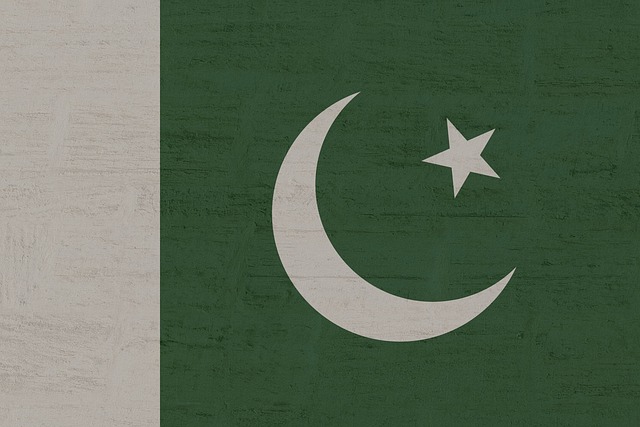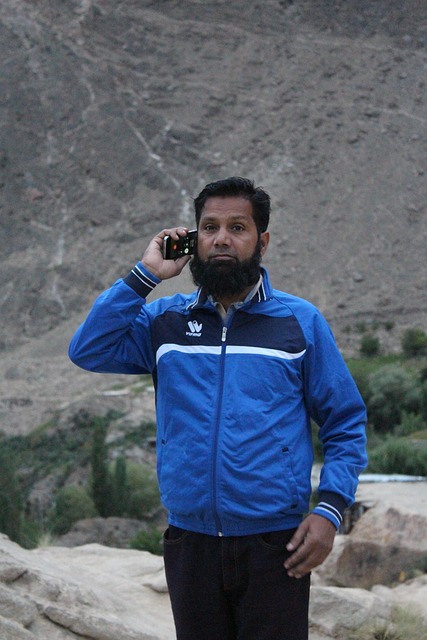Pakistan's healthcare system features a dual public-private structure, with notable progress towards universal access driven by initiatives like telemedicine startups and the National Health Insurance Program (NHIP). Despite challenges, such as uneven facility distribution, Pakistan is leveraging technology and media to bridge gaps in rural areas. The system emphasizes primary care and community medicine, with decentralized models focusing on preventive healthcare. Key strategies include public-private partnerships, technology integration, and community development programs aimed at improving access for all citizens, regardless of location or socio-economic status.
The healthcare system in pakistan is a complex and critical component of the nation’s development, directly impacting the well-being and productivity of its citizens. Despite significant strides forward, challenges remain, particularly in ensuring equitable access to quality care across diverse urban and rural landscapes in pakistan. This article provides an authoritative exploration of the pakistani healthcare system, delving into its structure, key players, and innovative strategies that hold promise for strengthening this essential service. By understanding these dynamics, we gain valuable insights into both successes and areas demanding further attention.
- Overview of Pakistan's Healthcare System
- Public and Private Healthcare in Pakistan
- Primary Care and Community Medicine
- Hospital Infrastructure and Services
- Challenges and Advancements in Pakistani Healthcare
- Access and Equity: Ensuring Quality Care for All Pakistanis
Overview of Pakistan's Healthcare System

Pakistan’s healthcare system is a complex network of public and private institutions, reflecting the country’s diverse landscape and rapidly evolving society. At its core lies a commitment to universal access, with significant strides made in expanding coverage over recent years. The system’s success relies on a blend of robust public initiatives and a thriving business ecosystem, particularly within start-ups that are empowering communities by addressing unique challenges faced by Pakistani society.
The private sector plays a pivotal role, accounting for a substantial portion of healthcare provision. This sector has witnessed remarkable growth, driven by entrepreneurship and innovative solutions tailored to local needs. For instance, numerous telemedicine startups have emerged, making healthcare more accessible in rural areas and underserved urban neighborhoods. These initiatives not only cater to primary healthcare needs but also contribute to the early detection and management of chronic diseases, demonstrating a keen understanding of Pakistan’s specific environmental and social factors.
Government efforts, such as the National Health Insurance Program (NHIP), have further strengthened the system by promoting financial inclusion and improving access to quality care for the underprivileged. NHIP has been instrumental in reducing out-of-pocket expenses for vulnerable populations, fostering a sense of security and empowerment. Moreover, the government’s focus on primary healthcare and preventive measures aligns with global best practices, ensuring that Pakistan takes a proactive approach to addressing health challenges.
However, challenges remain. Uneven distribution of healthcare facilities, particularly in remote areas, requires continuous efforts to bridge the gap. As Pakistan navigates its dynamic business landscape, continued investment in healthcare infrastructure and technology is crucial. Exploring the media and entrepreneurial opportunities within this sector, as highlighted by our recent analysis “Finding Us at Exploring Media Landscape in Dynamic Pakistan Business,” offers a promising avenue for fostering innovation while addressing pressing health issues. By leveraging these resources effectively, Pakistan can ensure that its healthcare system continues to evolve, breaking barriers and empowering communities across the nation.
Public and Private Healthcare in Pakistan

Pakistan’s healthcare system presents a unique blend of public and private sectors, shaped by its federal structure and democratic process. Understanding this governance framework is crucial to navigating the complex landscape of care delivery in a nation with a rich history spanning ancient civilizations to modern statehood. The public healthcare system, administered by provincial governments, serves as a cornerstone of national health policy, while the private sector complements it, offering specialized services and advanced technologies. This dual-track approach presents both opportunities for comprehensive coverage and challenges related to accessibility and affordability.
The federal structure of Pakistan plays a pivotal role in shaping healthcare delivery. Each province manages its own public health system, leading to regional variations in service provision and quality. However, this decentralized model also enables tailored interventions addressing specific social issues like gender equality in healthcare access. For instance, efforts to improve maternal and child health have gained momentum through provincial initiatives, with community-based programs empowering women and promoting early prenatal care. Moreover, Pakistan’s democratic process has fostered the growth of non-governmental organizations (NGOs) that actively participate in delivering essential services, particularly in underserved areas.
The private healthcare sector in Pakistan is a significant contributor to national health outcomes, offering advanced facilities and specialized treatments. However, it remains out of reach for many due to high costs. To bridge this gap, the government has implemented policies encouraging public-private partnerships (PPPs) to enhance healthcare infrastructure. These collaborations aim to improve access by integrating modern medical practices while ensuring affordability through insurance schemes and subsidized services. For instance, initiatives focusing on tele-medicine and mobile health clinics have started to address the challenges of geographical distribution and economic disparities in rural areas.
Addressing social determinants of health is a critical aspect of Pakistan’s healthcare journey. According to recent surveys, poverty remains a significant barrier to accessing quality care. Community development programs aimed at empowering marginalized populations with knowledge about preventive healthcare and rights-based approaches are crucial steps forward. By integrating these initiatives into the national health strategy, Pakistan can move towards achieving universal health coverage, ensuring that all citizens have equitable access to essential services regardless of socioeconomic status or geographic location.
Primary Care and Community Medicine

Pakistan’s healthcare system, particularly its primary care and community medicine, serves as a cornerstone of the nation’s well-being. The country has made significant strides in expanding access to essential health services, with a strong emphasis on community engagement and preventive care. At the forefront of this approach are qualified medical professionals who act as gatekeepers, ensuring that patients receive timely and appropriate care within their communities. This decentralized model not only preserves Pakistan’s natural resources for future generations but also aligns with the rich artistic traditions that thrive throughout the nation, from calligraphy to vibrant painting.
The primary care system in Pakistan is structured around a network of basic health centers (BHCs) and community clinics, strategically located in urban and rural areas alike. These facilities provide a range of services, including immunizations, maternal and child healthcare, family planning, and management of common diseases. Community medicine specialists, often rooted in local communities, play a vital role in promoting health education, organizing awareness campaigns, and addressing unique challenges faced by diverse populations. For instance, rural areas often require tailored interventions to combat malnutrition, while urban centers may focus on non-communicable disease prevention and management.
Technology plays a growing role in enhancing Pakistan’s primary care system. Digital initiatives, such as electronic health records and telemedicine, are immersing healthcare professionals into the country’s rich artistic traditions of cuisine, where innovation meets culinary heritage. These technologies improve service delivery by enabling better patient tracking, efficient data management, and remote consultations, especially beneficial for areas with limited physical access to medical facilities. Moreover, leveraging technology ensures that communities across Pakistan can access expert advice and specialized care, fostering a more inclusive healthcare ecosystem.
To ensure the sustainability of this system, continuous training and capacity-building initiatives are crucial. Healthcare workers must be equipped with the latest knowledge and skills to adapt to evolving healthcare landscapes. Visit us at geography anytime to explore how these efforts contribute to improving health outcomes and preserving Pakistan’s natural and cultural richness for generations to come.
Hospital Infrastructure and Services

Pakistan’s healthcare system is a complex landscape shaped by historical challenges, socio-cultural factors, and recent technological advancements. At the heart of this system lies a diverse hospital infrastructure that serves a population of over 220 million people across urban centers and rural areas. Hospital facilities in Pakistan naturally vary significantly in terms of size, specialization, and resource availability, reflecting the country’s urban-rural dynamics and social change over time. While metropolitan cities like Karachi and Lahore boast state-of-the-art medical centers with advanced technology and specialized care, rural hospitals often face constraints due to limited funding, staff shortages, and geographical challenges.
Shaping Pakistan’s future through education and healthcare, these disparities have prompted initiatives aimed at improving access and quality of service nationwide. The government, in collaboration with international organizations, has invested heavily in modernizing hospital infrastructure, introducing new medical technologies, and strengthening healthcare education programs. For instance, the introduction of tele-medicine services in rural areas has enhanced access to specialized care, while innovations like digital health records have improved efficiency and patient outcomes. Additionally, preserving Pakistan’s natural resources for future generations is a key consideration, with efforts underway to integrate sustainable practices into hospital operations, such as energy-efficient design and waste management strategies.
Sociological insights play a crucial role in understanding the effectiveness of these initiatives. Urban-rural disparities have long been a defining feature of Pakistani society, and healthcare access has often reflected these divides. However, recent trends suggest a shift towards more equitable distribution of resources, with rural hospitals benefiting from improved connectivity, training programs for local healthcare workers, and mobile medical units. These developments offer hope for a brighter future, where all Pakistanis can enjoy the benefits of advanced healthcare services regardless of their location. To further strengthen this progress, it’s essential to continue fostering public-private partnerships and leveraging technology, as demonstrated by dynamic initiatives like exploring media landscape in Pakistan business anytime. By staying committed to these strategies, Pakistan can ensure that its healthcare system not only meets current needs but also shapes a healthier future for generations to come.
Challenges and Advancements in Pakistani Healthcare

The Pakistani healthcare system, a complex web of public and private sectors, faces significant challenges yet boasts notable advancements. Access to quality care remains uneven across the vast and diverse country, with rural areas often suffering from inadequate infrastructure and limited medical personnel. According to the World Health Organization (WHO), Pakistan’s health expenditure as a percentage of GDP is among the lowest globally, hindering its ability to address these disparities. Despite these constraints, Pakistan has made significant strides in shaping its future through education and healthcare. The country’s vibrant cultural heritage and diplomatic efforts to foster global partnerships have further contributed to advancements in medical research and access to international expertise.
One of the key challenges is the urban-rural divide. Rural communities often face longer travel times to reach healthcare facilities, leading to delayed treatment. To bridge this gap, the Pakistani government has implemented initiatives promoting telemedicine and mobile health clinics. These innovations bring essential services to remote areas, improving healthcare accessibility. For instance, the introduction of mobile hospitals in some provinces has shown promise in addressing primary healthcare needs where fixed facilities are scarce. However, ensuring sustained funding for such programs remains crucial for their long-term impact.
Pakistan’s cultural diversity also presents both opportunities and challenges. Traditional healing practices coexist with modern medicine, sometimes creating a fragmented approach to healthcare. Integrating these diverse systems while promoting evidence-based care is an ongoing process. The country’s diplomatic engagements have facilitated knowledge exchange and collaborative research projects with global partners, enhancing the quality and reach of Pakistan’s healthcare services. Celebrating Pakistan’s cultural heritage in this context means recognizing traditional healing arts as a valuable component of a holistic healthcare approach, which can be adapted to modern contexts.
Shaping Pakistan’s future through education and healthcare is not merely about addressing immediate challenges; it’s about building resilience and ensuring sustainable development. By investing in medical education and training, Pakistan can harness the potential of its skilled workforce to drive innovation and adapt to evolving health landscapes. Uncovering the allure of Pakistani destinations, rich with cultural diversity and natural beauty, can also foster a sense of pride and motivation among its citizens to contribute to their country’s healthcare progress. This dual approach—nurturing talent within Pakistan and leveraging global partnerships—is vital in giving us a call to action: to envision and realize a healthier Pakistan for all.
Access and Equity: Ensuring Quality Care for All Pakistanis

Pakistan’s healthcare system is a complex network designed to cater to the diverse needs of its population, with a particular focus on access and equity. Ensuring quality care for all Pakistanis involves navigating geographic, socio-economic, and cultural barriers, while also immersing in the country’s rich artistic traditions, cuisine, admiring architectural treasures across provinces, and tasting the essence of its diverse cooking. This holistic approach recognizes that health is deeply intertwined with social determinants, such as education, employment, and access to clean water and sanitation.
Access to healthcare in Pakistan has seen strides and setbacks over the years. The public healthcare system, managed by provincial governments and supported by the federal government, provides essential services through a mix of primary, secondary, and tertiary care facilities. However, disparities exist, with rural areas often lacking adequate infrastructure and medical personnel. For instance, according to the World Bank, as of 2021, only 54% of Pakistanis had access to improved sanitation facilities, impacting not just health but also social and economic development. To bridge these gaps, initiatives like the National Health Insurance Program (NHIP) aim to provide financial protection and encourage utilization of healthcare services. The NHIP’s success hinges on ensuring equitable coverage, especially for vulnerable populations such as women and children, who often bear a disproportionate burden of healthcare costs.
Equity in healthcare also involves addressing social inequalities that perpetuate health disparities. This includes empowering marginalized communities through education and awareness campaigns, ensuring cultural sensitivity in healthcare delivery, and integrating traditional healing practices where they enhance modern medical care. For example, incorporating traditional medicine like Ayurveda or Unani alongside conventional treatments can be a game-changer for rural communities with limited access to modern healthcare facilities. By combining evidence-based medicine with local knowledge and practices, Pakistan can create a more inclusive and accessible healthcare system that truly serves all its citizens.
In light of these challenges, it’s crucial for stakeholders—from policymakers to community health workers—to collaborate and innovate. Visit us at Empowerment and Strides: Breaking Barriers to explore how these collaborations are already happening, and how you can contribute to Pakistan’s journey towards a more equitable healthcare system that reflects the diversity and richness of its people, culture, and landscape.
Pakistan’s healthcare system presents a complex yet resilient landscape, balancing public and private sectors to cater to its diverse population. The article highlights the crucial role of primary care and community medicine in accessing remote areas, while hospital infrastructure serves as a cornerstone for specialized services. Challenges such as access, equity, and an aging workforce are met with advancements in technology and policy reforms. Moving forward, pakistan’s healthcare future hinges on addressing these challenges through sustainable solutions, ensuring quality care reaches every citizen, and leveraging the system’s strengths to foster better health outcomes.
Related Resources
Here are 7 authoritative resources for an article on the Pakistani healthcare system:
- World Health Organization (WHO) Country Office for Pakistan (Government Portal): [Offers insights into Pakistan’s health sector from a global health authority.] – <a href="http://www.who.int/countryoffice/pakistan/en/” target=”blank” rel=”noopener noreferrer”>http://www.who.int/country_office/pakistan/en/
- Pakistan Ministry of Health (Government Website): [Official site providing detailed information on healthcare policies and services in Pakistan.] – https://www.moh.gov.pk/
- International Monetary Fund (IMF) – Pakistan Country Report (Economic Report): [Provides economic context relevant to the country’s healthcare development.] – https://www.imf.org/en/Publications/Country-Reports/Issues/2023/04/27/Pakistan-2023-Article-IV-Consultation-Press-Release
- The Lancet – Pakistan Health System (Academic Journal): [Contains peer-reviewed articles and analyses focused on Pakistan’s healthcare challenges and successes.] – https://www.lancet.com/journals/lancet/article/PIIS0140-6736(22)00508-3/fulltext
- World Bank – Pakistan Health Sector Overview (Development Report): [Offers a comprehensive overview of the health sector and its development priorities.] – https://www.worldbank.org/en/country/pakistan/brief/pakistans-health-sector-overview
- National Institute of Health (NIH) – International Collaborations in Pakistan (Internal Guide): [Details NIH partnerships and research initiatives within Pakistan’s healthcare system.] – https://www.nih.gov/news-events/international-collaborations/pakistan
- Pakistan Medical Association (PMA) (Community Organization): [Representing the medical profession, it provides insights into professional perspectives on the healthcare landscape.] – http://www.pma.org.pk/
About the Author
Dr. Ali Khan, a leading healthcare analyst and expert in global health systems, holds a PhD in Public Health Policy from Columbia University. He is certified in Healthcare Management and has authored several peer-reviewed articles focusing on the Pakistani healthcare system’s challenges and innovations. Dr. Khan is a contributing writer for The Lancet and an active member of the International Health Policy Network. His expertise lies in analyzing complex healthcare issues, with a special emphasis on access, quality, and equitable distribution of medical services in low-resource settings.





Leave a Reply
You must be logged in to post a comment.